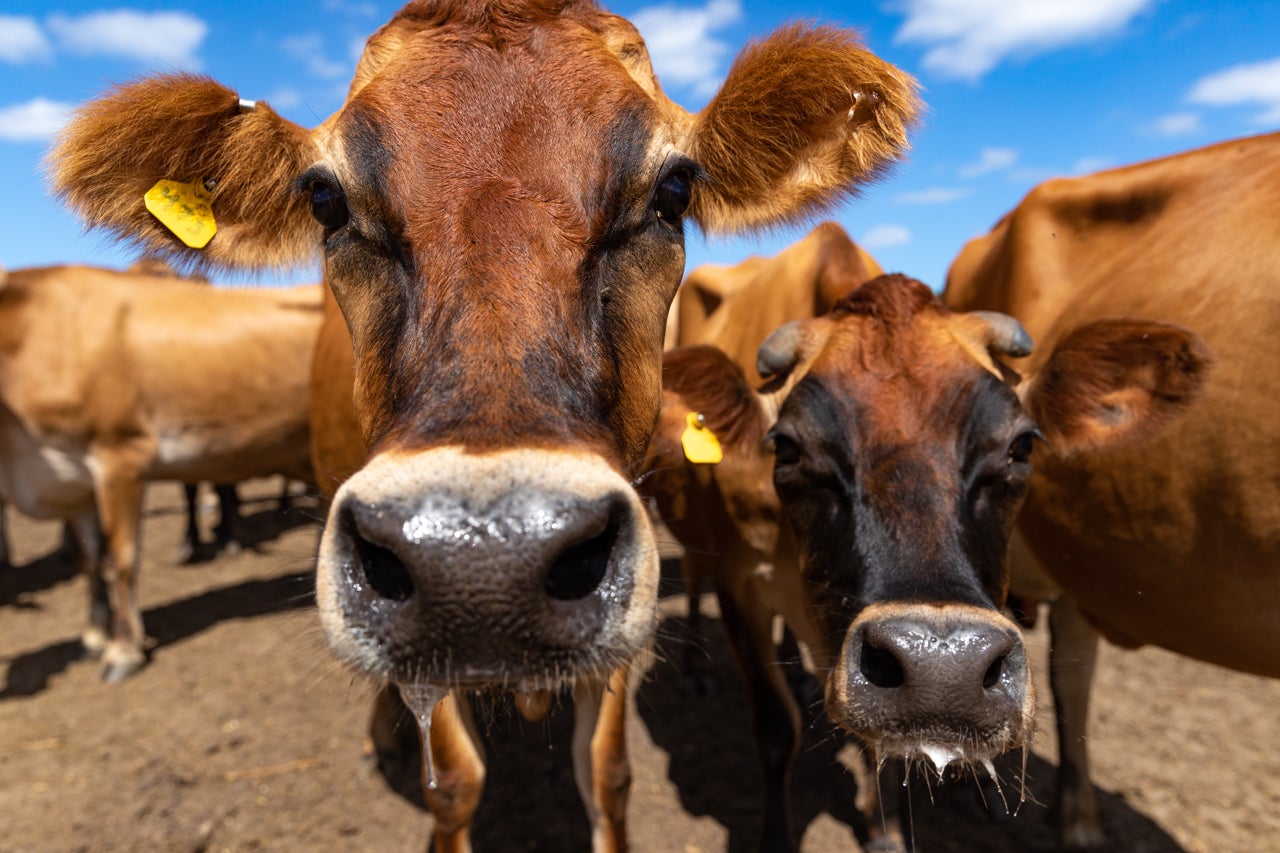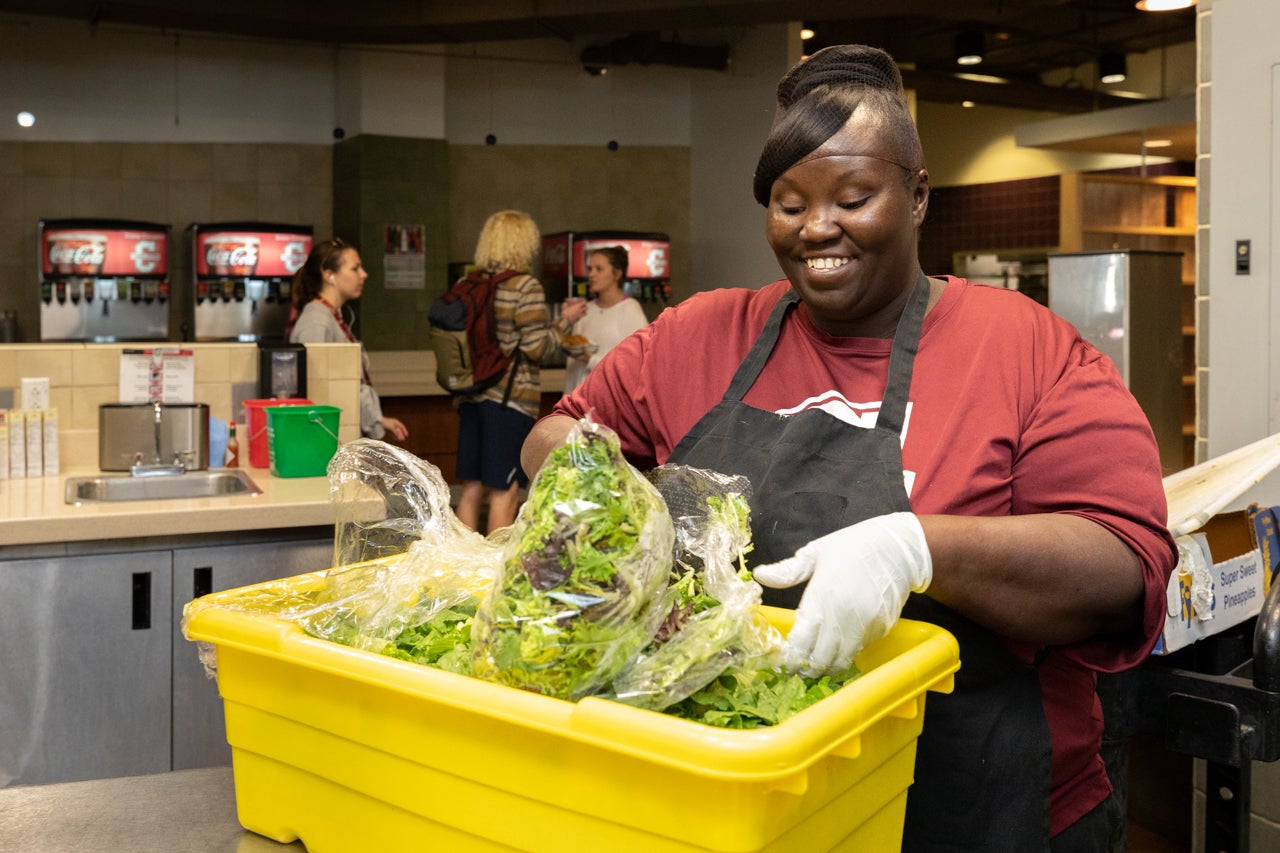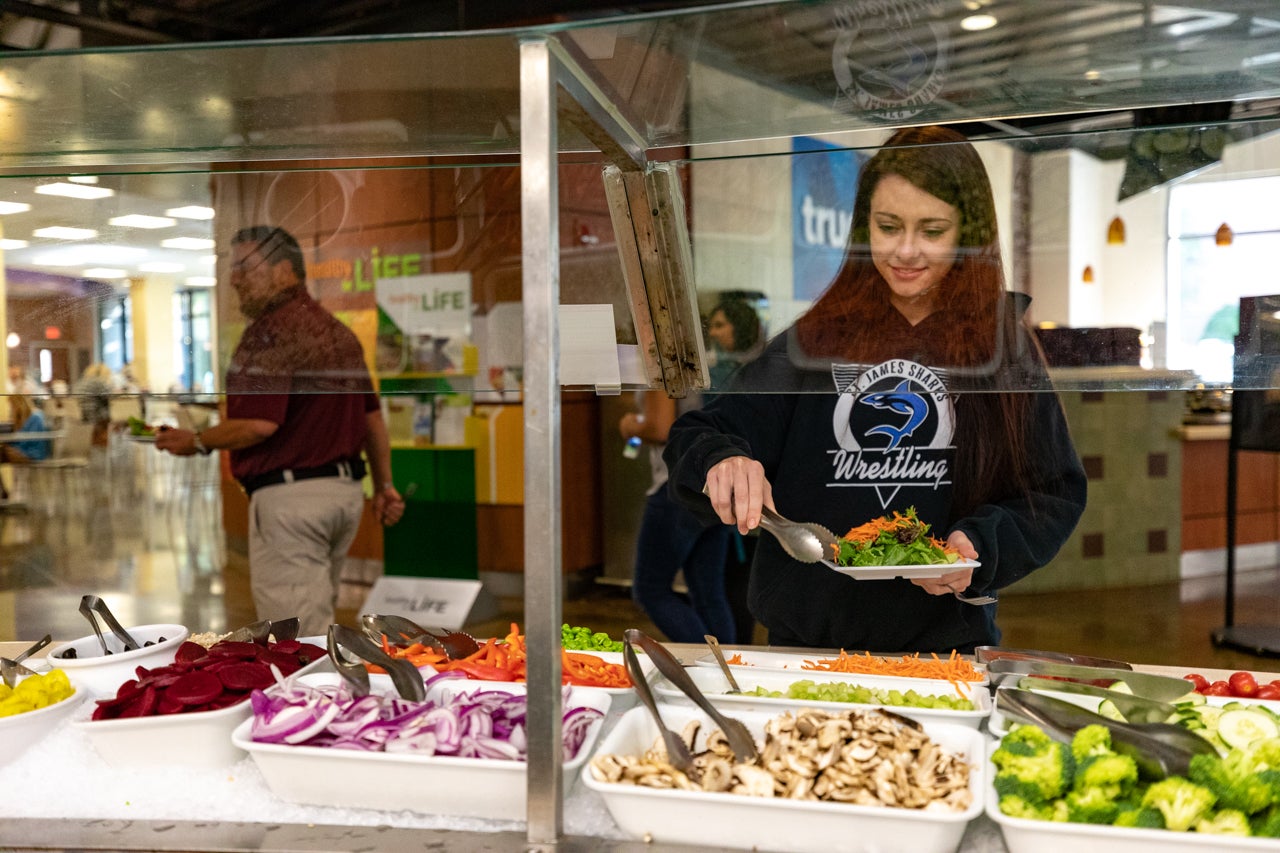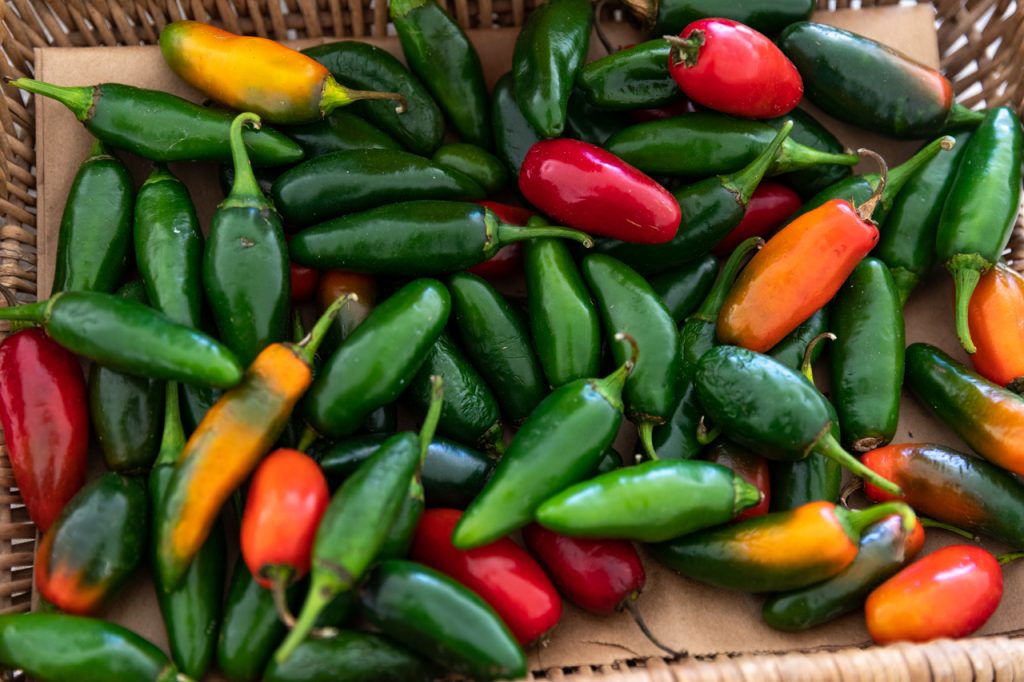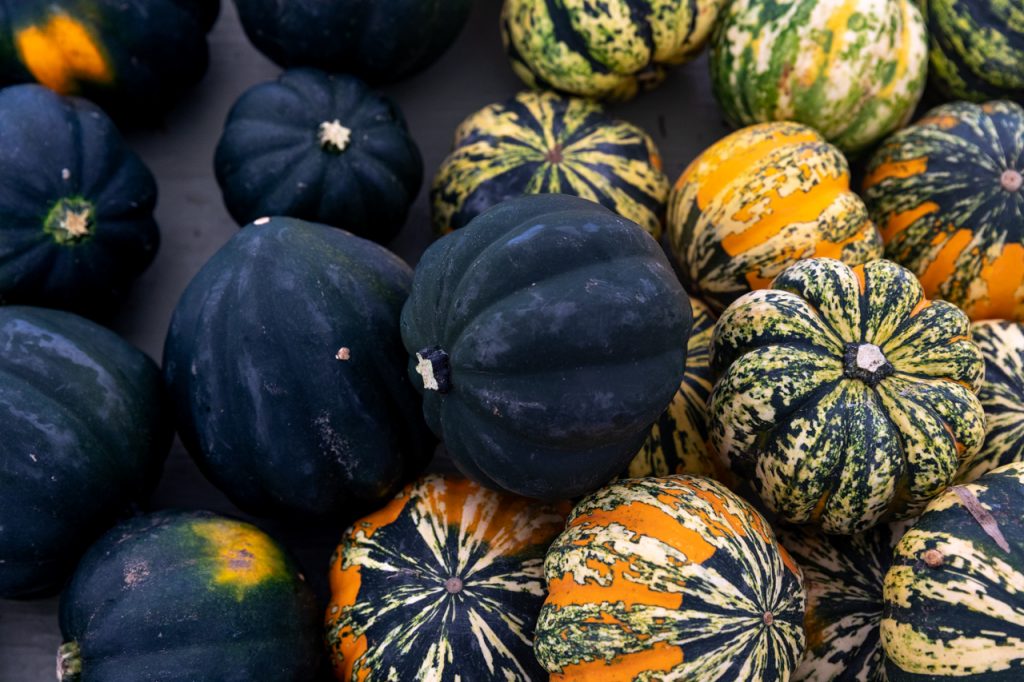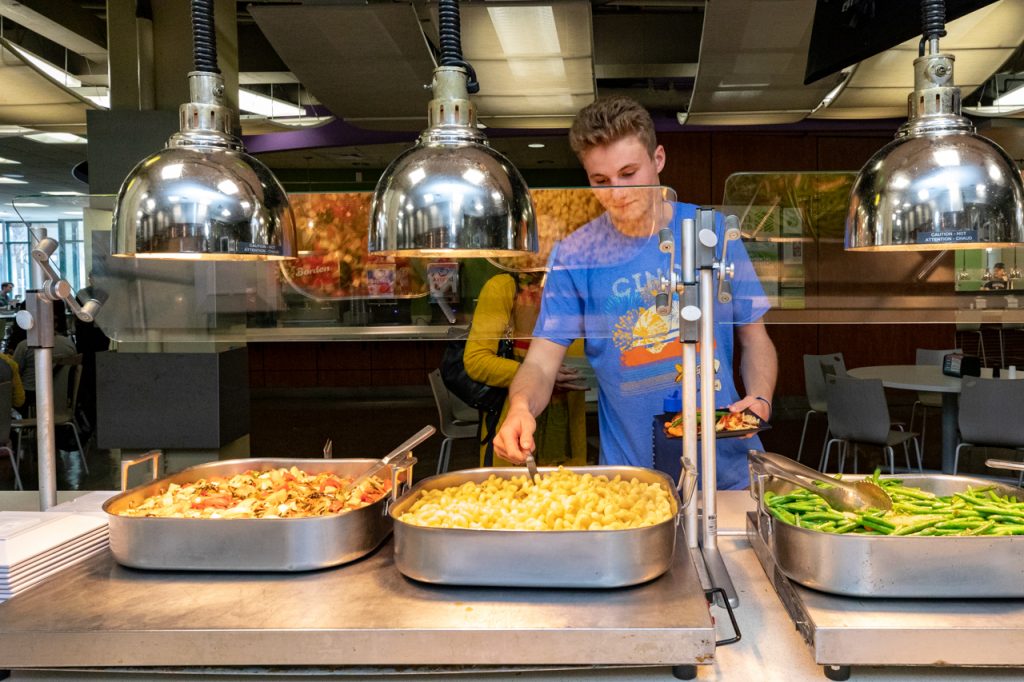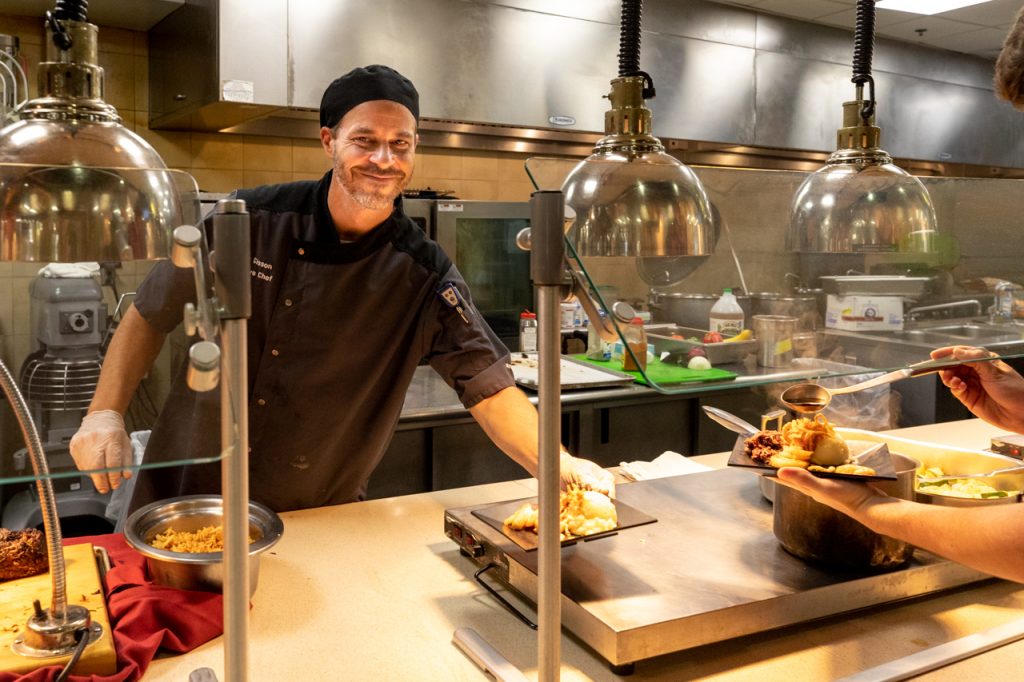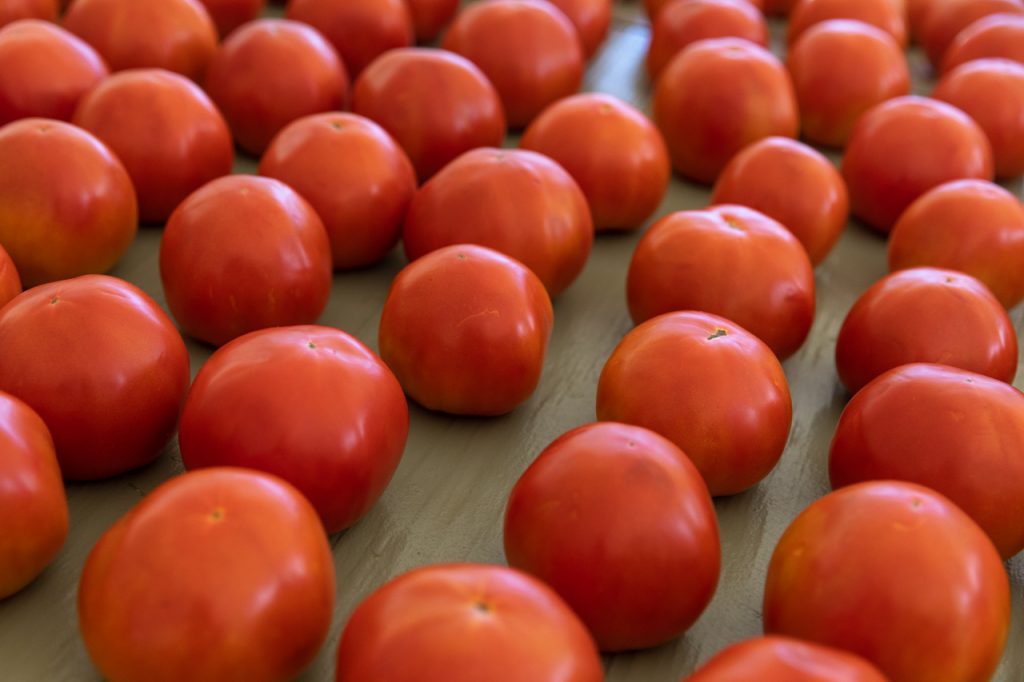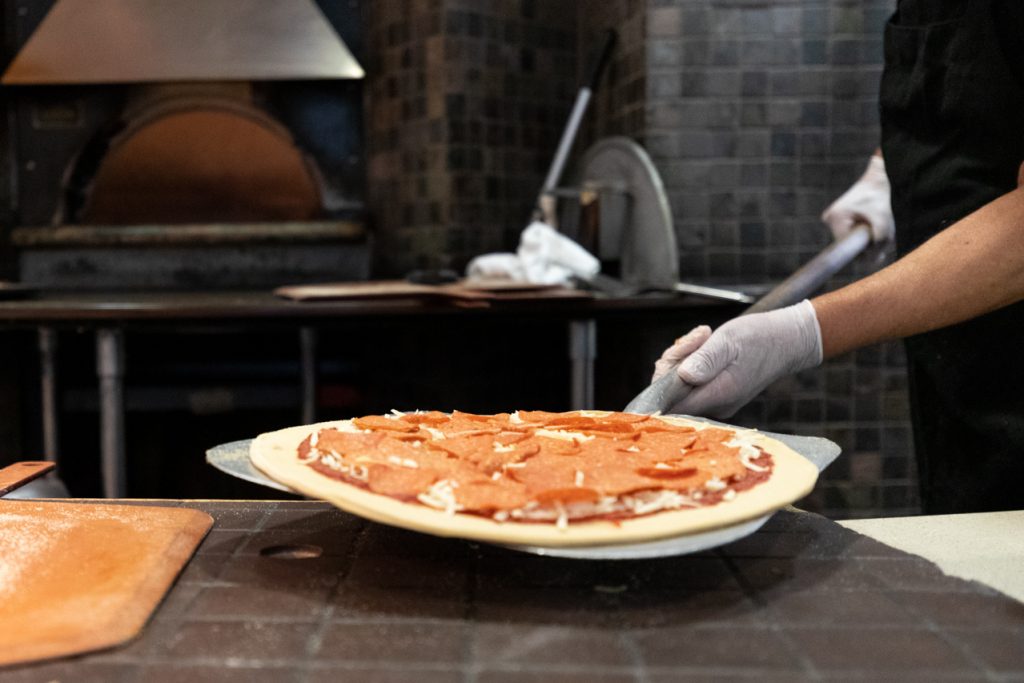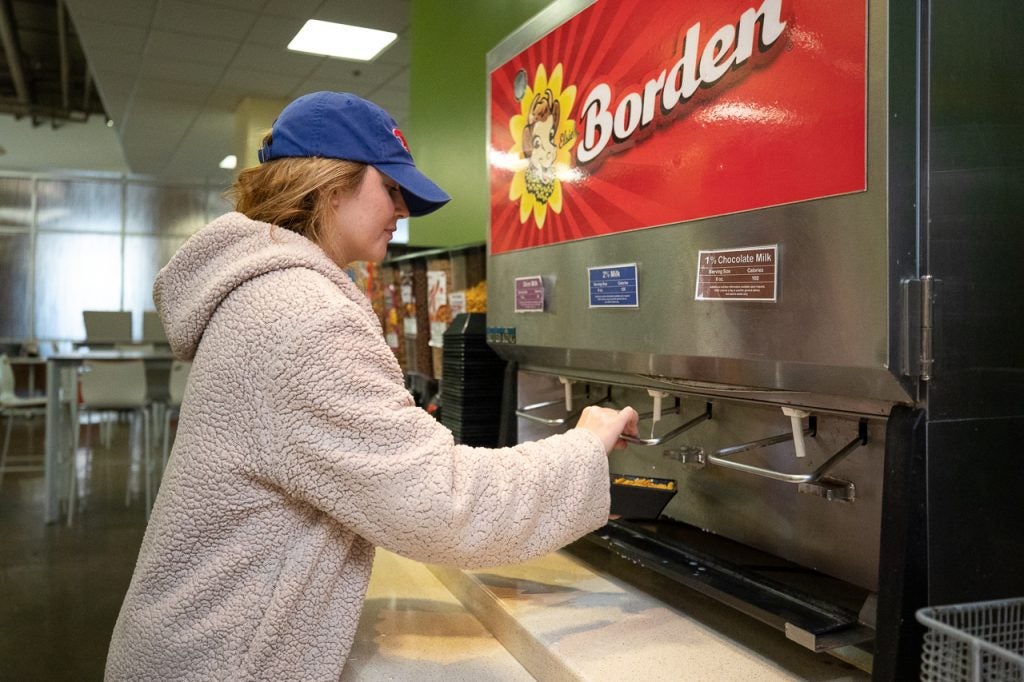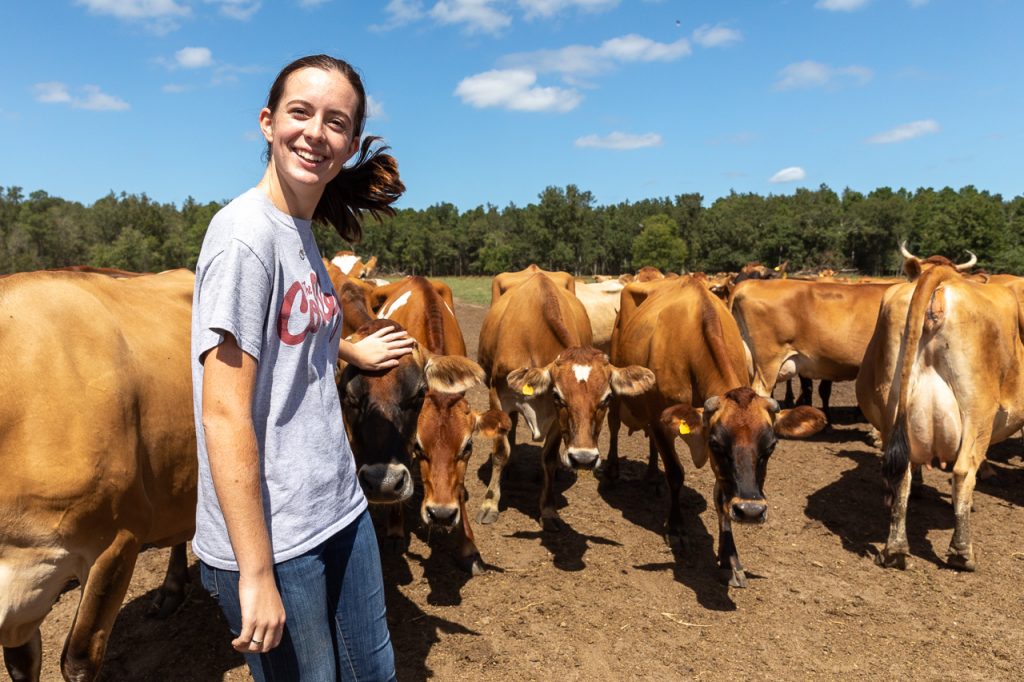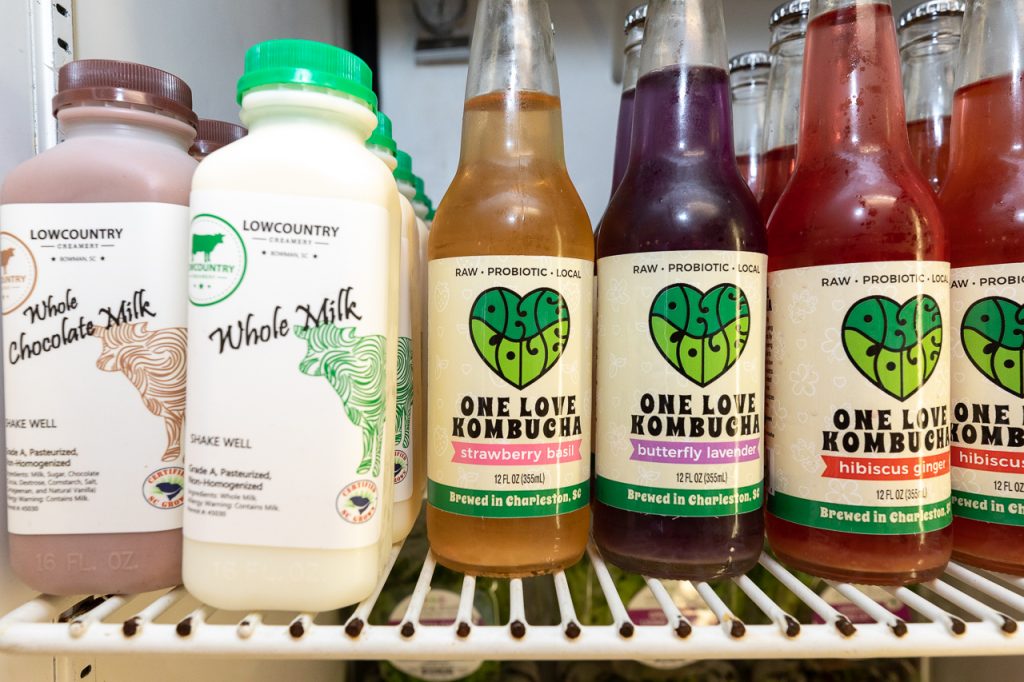You can’t learn on an empty stomach, or so the old adage goes. But what you eat also matters, and so does where it comes from. And, in a world challenged by an increasingly global economy, supporting local farmers is essential to keeping your food fresh and sustainably grown.
That’s why College of Charleston Dining Services makes it a point to purchase locally grown produce, eggs, milk and more to ensure students are properly fueled for learning. It takes an army of farmers, cooks and staff to feed the campus of 10,000 students (plus visitors) who eat at the College’s various dining facilities each year.
From the cutting-edge indoor farming of Vertical Roots on Daniel Island, South Carolina, to the slow pasteurized milk from Lowcountry Creamery in Bowman, South Carolina, here is a look at the journey of CofC’s food from farm to campus.
- Christy Williams preps the salad bar with lettuce grown at Vertical Roots Hydroponic Farm in Charleston, S.C.
- A student digs in at the Liberty Street Fresh Food Co.’s salad bar, where lettuce from Vertical Roots and vegetables from the GrowFood Carolina farmers are available.
Left: Student Mary Bryan, an urban studies major and a minor in environmental and sustainability studies, picks lettuce from the shelves inside a Vertical Roots pod. Top: Christy Williams preps the salad bar at Liberty St. Fresh Food Company with lettuce from Vertical Roots. Bottom: A student digs in at Liberty St. Fresh Food Company’s salad bar, where lettuce from Vertical Roots and vegetables from GrowFood Carolina farmers are available.

Makenna Coon ’16, who majored in biology and minored in environmental studies, tends to lettuce in the Vertical Roots Hydroponic Farm’s pod.
So far this year, Dining Services has received 8,868 heads of lettuce from Vertical Roots, an agricultural outfit that specializes in hydroponic indoor farming. Based on Daniel Island, South Carolina, Vertical Roots lettuce only has to travel about 17 miles to get to campus.
- Jalapeño peppers from Rosebank Farms.
- Kabocha and Carnival squash from Rosebank Farms.
Jalapeño peppers and Kabocha and Carnival squash from Rosebank Farms on Johns Island, South Carolina.

GrowFood Carolina General Manager Anthony Mirisciotta holds up a box of red cayenne peppers recently delivered from a local farm.
GrowFood Carolina, which provides a variety of food to CofC, is a local food hub that supports area farmers with sales, marketing, logistics, warehousing and distribution services. Everything from squash and lettuce to milk and eggs are collected from farmers across the region and then distributed to CofC’s Dining Services where it is used in dining halls, Market 159, catering and the College’s Farmers Market. So far this year, GrowFood Carolina has delivered 3,780 local eggs, 520 pounds of local apples and 1,239 pounds of local honey to the College.
- A student serves himself from the Lowcountry Kitchen station at Liberty St. Fresh Food Co.
- Jason Sisson, the executive chef at CofC’s Liberty St. Fresh Food Co., serves students at the Lowcountry Kitchen station.
Top left: A student serves himself from the Lowcountry Kitchen station at Liberty St. Fresh Food Company. Top right: Jason Sisson, executive chef at Liberty St. Fresh Food Company, serves students at the Lowcountry Kitchen station. Bottom left: Fresh picked okra from Rosebank Farms is among the local produce CofC uses in its dining halls.

Walter Earley gathers zucchini squash from his field at Hickory Bluff Berry Farm in Holly Hill, South Carolina. His vegetables are among the produce the College receives through GrowFood Carolina.
Whether it’s green beans, okra or squash, the Lowcountry Kitchen station at Liberty St. Fresh Food Company is among the different cuisine stations to utilize locally grown produce in their daily menus.
- Tomatoes from Rosebank Farms.
- Pizza before it goes into the oven at Liberty St. Fresh Food Co.

Aly Touma creates the mouthwatering pizza pies at Liberty St. Fresh Food Co. deli station.
Locally grown ingredients, such as tomatoes grown 20 miles from campus on Rosebank Farms on Johns Island, South Carolina, make for tasty, fresh pizza at Liberty St. Fresh Food Company.
The College has used 571 gallons of milk and Swiss and Greek yogurt this year from Lowcountry Creamery in Bowman, South Carolina. The farm uses Jersey cows, known for their high quality of dairy. Lowcountry Creamery milk is used in dining halls through a partnership with Borden, and the dairy’s retail products are available for purchase at CofC’s Market 159.

